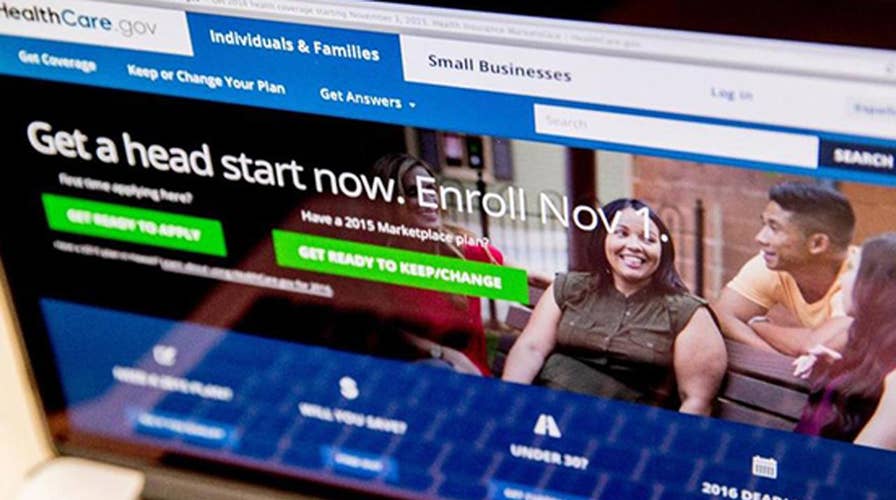Fixing ObamaCare: Has repair replaced repeal?
Jessica Ehrlich, Democratic strategist, and Kevin McCullough, conservative radio host, joins the debate
President Trump tweeted early Friday that the repeal and replacement of former-President Obama’s health law is moving “fast,” after news reports indicated that Republicans are divided on how much of the law to repeal.
The Trump administration took steps Wednesday intended to calm jittery insurance companies and make tax compliance with former President Barack Obama's health law less burdensome for some people.
OBAMACARE IN 'DEATH SPIRAL,' AETNA CEO SAYS
But the changes could lead to policies with higher annual deductibles, according to the administration's own proposal. That seems to undercut President Donald Trump's assurance in a recent Washington Post interview that his plan would mean "lower numbers, much lower deductibles."
The moves announced separately by the Health and Human Services Department and the IRS don't amount to sweeping changes to the Affordable Care Act. That would fall to Congress, where Republicans are struggling to reach consensus over how to deliver on their promise to repeal and replace the health law. House Speaker Paul Ryan, R-Wis., is expected to present elements of a plan to GOP lawmakers Thursday morning.
But the administration actions do signal a change in direction. Recently confirmed HHS Secretary Tom Price called them "initial steps in advance of a broader effort to reverse the harmful effects of Obamacare." Premiums are up sharply this year, while many communities were left with just one insurer.
For consumers, the proposed HHS rules mean tighter scrutiny of anyone trying to sign up for coverage outside of open enrollment by claiming a "special enrollment period" due to a change in life circumstances such as the birth of a child, marriage, or the loss of job-based insurance. Also, sign-up season will be 45 days, shortened from three months currently.
For insurers, the curbs on special enrollments are a big item. The industry claimed that some consumers were gaming the system by signing up when they needed expensive treatments, only to drop out later.
Insurers would also gain more flexibility to design low-premium plans tailored to younger people. But that flexibility could lead to higher deductibles, according to HHS.
"The proposed change ... could reduce the value of coverage for consumers," the administration proposal said. "However, in the longer run, providing (insurers) with additional flexibility could help stabilize premiums."
Larry Levitt of the nonpartisan Kaiser Family Foundation said "this would allow insurers to offer plans with higher deductibles, which seems counter to President's Trump promise to lower deductibles." A deductible is the annual amount consumers pay for medical care before their insurance kicks in.
Democrats said the HHS changes would undermine consumer protections and make more people uninsured. Some called the move "sabotage."
The Associated Press contributed to this report













































